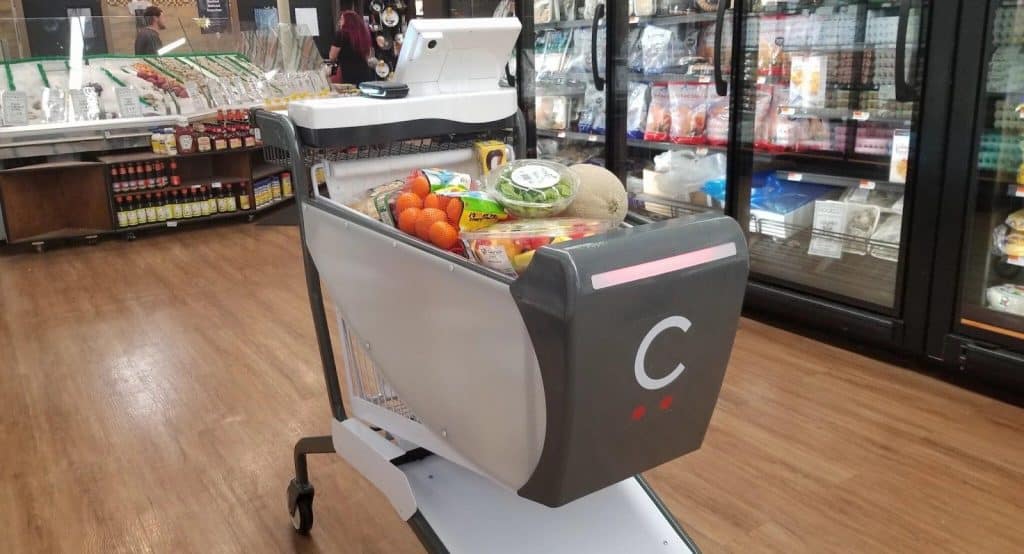The Big Data market is booming. Although the need to transform data into information for decision making is not new, the need to [...]
Read More »Artificial intelligence (AI), Machine Learning (ML) and data analytics are rapidly changing and having a major impact on the retail sector.. This can be seen in the data prepared by The Market Study Report where it indicates that the retail sector will have a year-on-year growth rate of 29.71TP2Q, 3.06 billion euros in 2020 to 24.5 billion euros in 2027.
Fortunately, Artificial Intelligence makes it possible to process the real-time retailer data for near-instantaneous decision making allowing you to optimize your supply chain and control costs. In addition, AI makes it possible to guide customers and anticipate their behavior by inferring knowledge from data through algorithms. The goal is to optimize and increase business sales, while providing excellent customer service.
Knowing the customer's behavior from their data and predicting their trend, allows you to retain existing customers while increasing the acquisition of new ones.
Retail is a very customer-centric industry, and with consumer needs constantly growing and changing, entrepreneurs must find ways to gain a competitive advantage and offer their shoppers a unique experience. That's why below we bring you four points where AI is improving the retail sector:
AI applications for retail stores can help companies price their products or services by processing all purchases made by customers, prices applied and promotions. From that information you can make simulations and estimates of the impact of price changes, promotions and their returns.
In order to do this, AI systems collect all the information about products, promotional activities, sales and competitor prices among others. In this way, companies can present the best offers, build customer loyalty and win new customers. As a result, sales channels can be developed by adjusting prices and promotions based on the information obtained with Artificial Intelligence.
AI can be used to predict the price of a product based on demand, seasonal trends, the characteristics of an industry, the launch date of new models of the same item, etc.
The most frequent use of predictive pricing is in the travel industry, but it can also be used in retail, for example, through an application or service that helps customers know in advance how the price of a particular product will change.
The use of AI-based intelligent assistants not only enhances the customer experience but also analyzes customer behavior and enables companies to better understand their shoppers. In this way, promotions or products that best suit them can be individually customized.
Automated responses can also be created tailored to the particular needs of each customer to quickly and efficiently resolve any issues. This can increase brand or store loyalty and improve customer satisfaction.
Fraudulent transactions can directly affect profits and tarnish a retailer's reputation in a short time, regardless of the expansion of physical stores or those with an online presence.
Fraud detection and prevention must be carried out in real time and accurately. This is a key point that all retailers need to work on and where AI is able to analyze behavioral patterns dynamically and predictively to generate early warnings to detect and control potential risks from fraud.
Retail is undoubtedly one of the sectors most affected by artificial intelligence.
In stores and online, customers demand a personalized shopping experience based on their profile, desires and consumption habits. Artificial intelligence can respond to these challenges today, in particular and here are some of them examples of AI where it improves processes in the retail sector:

Caper wants to eliminate checkout lines easily by simply replacing shopping carts while providing a more familiar experience for customers.
This cart, with a built-in barcode scanner and credit card reader, automatically scans items dropped off by the customer, using three image recognition cameras and a weight sensor.
But how does it help retail? One of the benefits of this technology is that cashier stations will disappear to help customers buy more and keep shelves stocked, and another big benefit is that information is shared through the collection of the data in the carts.
For example the routes through the store, the shelves through which customers pass... This way the decision making will be better and almost automatically to optimize the store designs.
And the last big advantage over its competitors with overhead cameras and shelving is that the Caper cart can promote offers on items nearby or related to the products being purchased.

For the supply chain, Artificial Intelligence greatly improves the ability to predict delivery times and therefore anticipate delays or anomalies in the transport of goods to the four corners of the globe.
In addition, the AI also optimizes store inventory and indicates the products in the right place to accelerate the flow rate and, therefore, reduce the average discount level at the end of the season.
Another function of the algorithms for optimizing stores is to stop the replenishment of stock after the sale of a given SKUestimating that the point of sale has statistically little chance of resale. In this way, the products remain in the warehouse and will be offered to other stores with a greater possibility of sale.
Another of the points where the AI is helping stores is in reducing web order returns.which are very costly for the retailer. Normally the consumer usually orders several sizes, colors... to try on at home and return what does not fit, but thanks to Machine Learning, which crosses the web path, purchases, customer profiles and product repository, it is possible to detect and isolate these consumers and thus simulate in the e-commerce store stock shortages in products and sizes by considering AI as high risk of return.
The combination of comprehensive customer data and the power of artificial intelligence allows companies to optimize supply chains, pricing, commercial promotions,.... with a level of precision that only this technology makes possible.
By deploying AI, retailers can manage the number of models deployed in each store, which reduces supply chain costs and helps deliver an optimal customer experience.
From GAMCO we offer a service to know the consumer and their shopping experience, increase sales by predicting "what, when and how they will want to buy", guide commerce by segmenting customer behavior, prioritize new opportunities, detect the optimal leverage variables (discount, promotion, cross-selling, added value, loyalty points and sales coupons) to offer personalized offers, and select communications via mobile, mail... in real time.
We are also able to create early warning alerts, advanced customer segmentation, card risk management, fraud detection, stock and inventory optimization, return prediction, optimizing reverse logistics, etc.
The Big Data market is booming. Although the need to transform data into information for decision making is not new, the need to [...]
Read More »In the dynamic financial world, optimizing the return on available assets is essential to the success of any lender. Gam [...]
Read More »Today we are going to talk about the generation of qualified leads for the acquisition of new customers through AI. At Gamco, we develop software based on [...]
Read More »The banking sector has undergone considerable transformations over the past 10 years. Especially as banking has become more integrated and [...]
Read More »